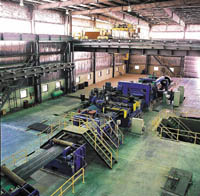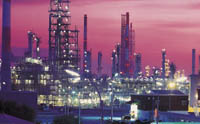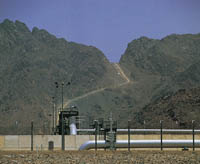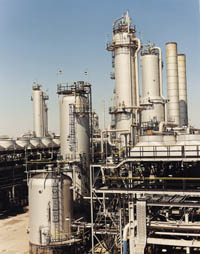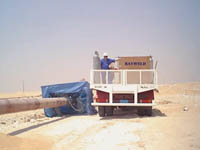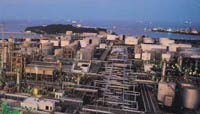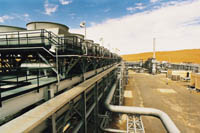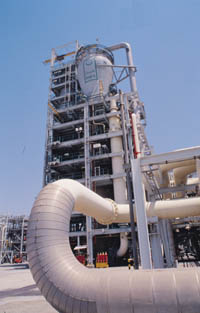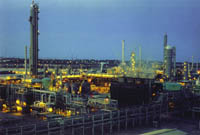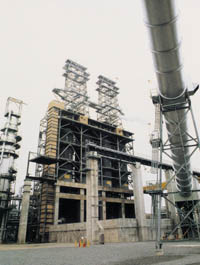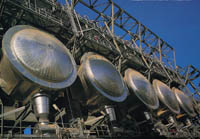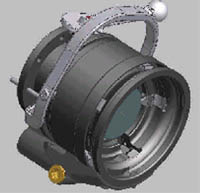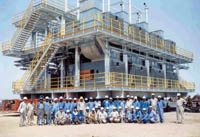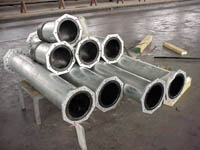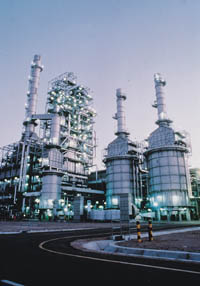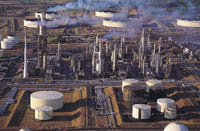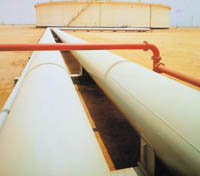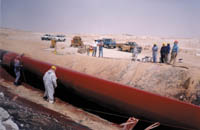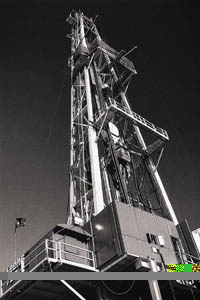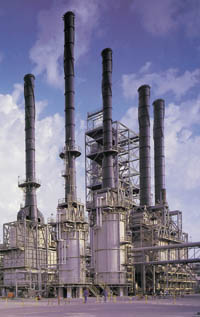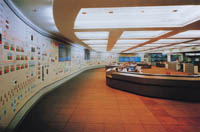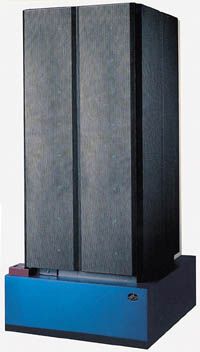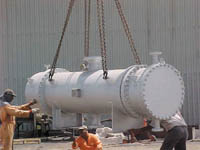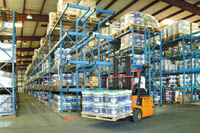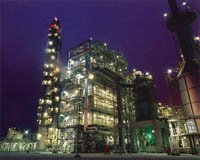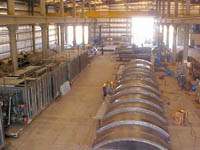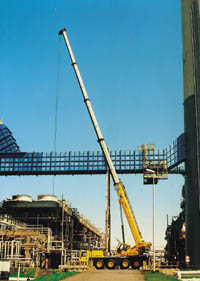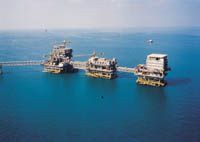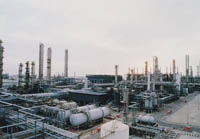
 Riyadh Bulk Plant .... at the heart of the distributions network
Riyadh Bulk Plant .... at the heart of the distributions network
QUALITY, SAFETY and modernisation are the key maxims under which Saudi Aramco operates its Distribution network.
The Distribution Operations network ensures the efficient supply of refined products to fuel Saudi Arabia's desalination and power complexes, as well as supplying jet fuel to airports and gasoline for service stations throughout the country.
Constant upgrades and the use of the latest technologies in its Distribution Operations has ensured Saudi Aramco's role as a key product player, not only in the Kingdom but also the world.
Domestic distribution is a relatively new responsibility for Saudi Aramco. Before the July 1, 1993 Royal decree which entrusted Saudi Aramco with the management of all of the Kingdom's refineries and petroleum distribution facilities, the company focused primarily on exploration and production activities.
Saudi Aramco's distribution functions were limited to marketing products from the Master Gas System and crude oil to selected local industries and supplying crude oil to Saudi Arabia's non-Aramco refineries.
In addition to the refineries at Yanbu, Riyadh, Jeddah and Rabigh, the move also gave Saudi Aramco control of a vast network of distribution facilities across the Kingdom.
The operation of such a network, its upgrade and modernisation, was a complex, challenging and demanding job.
The company approached the task determined to ensure the steady, reliable flow of refined petroleum products for the benefit of both industry and the individual.
The Distribution System was integrated into Saudi Aramco with no disruption in supply.
The Saudi Aramco distribution system comprises 18 bulk plants and 14 air fuelling units throughout Saudi Arabia.
The bulk plants are at the heart of the network, receiving, storing and delivering refined products such as liquefied petroleum gas (LPG), petrol, kerosene, diesel fuel and jet fuel.
They are also the distribution points for Saudi Aramco's industrial clients and the petroleum product customers who ensure supply to businesses and individuals.
The air fuelling units handle fuelling operations at civilian airports and military airbases throughout the Kingdom.
Distribution Operations controllers must ensure that each of the organisation's 32 installations is supplied with a sufficient quantity of the appropriate products to satisfy its clients' needs.
The movement of refined fuels from primary bulk plants to secondary plants and air fuelling units is therefore constant.
Every day between 3,000 and 5,000 tanker trucks, operated by more than 200 different contract haulers, transport products between Distribution Operations facilities. Refined products are also transported by rail from the Dhahran Bulk Plant to secondary installations at Al Kharj and Al Hasa.
The introduction of bottom-loading skids at the bulk plants' distribution centres has reduced the exposure of employees to petrol fumes, thereby boosting operational safety at the facilities.
Modernisation of the Distribution Operations network is part of an evolutionary process, according to Saudi Aramco.
Because the distribution network is so large and scattered throughout the Kingdom, any attempt to transform the system overnight would potentially disrupt supplies throughout the network.
At the same time, the current programme of steady, measured upgrades allows Distribution Operations planners to adapt to changing demand and consumption patterns across Saudi Arabia.
The acquisition of a nationwide distribution network is another major achievement for the state oil company and is a very public reflection of the Aramco commitment to quality, safety and the highest professional standards.










































































